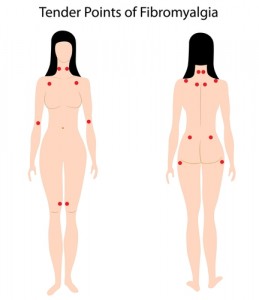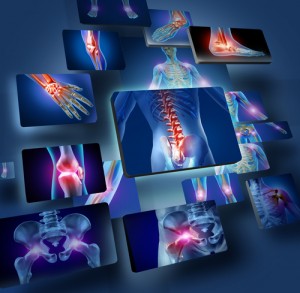Neurofeedback: A Natural Treatment For Fibromyalgia Symptoms
Can Neurofeedback Help Fibromyalgia Symptoms?
In 2010 the results of a randomized, controlled, rater blind clinical trial was published that concluded Neurofeedback was an effective treatment for pain, psychological symptoms and impaired quality of life associated with fibromyalgia. The full study reference is: Kayiran,S.et al, Neurofeedback intervention in fibromyalgia syndrome; a randomized, controlled, rater blind clinical trial, Applied Psychophysiology and Biofeedback. 35.4. p.293-302.
Closer to home, Raquel Abreau tells her story of how Neurofeedback was key to her recovery from fibromyalgia here.
What is Fibromyalgia and how is Fibromyalgia diagnosed?
Fibromyaligia is a condition that causes much pain and suffering. It isn’t diagnosed through diagnostic tests (e.g. blood tests or imaging exams), although you may have some of these tests to rule out other conditions. Diagnosis requires :-
- widespread pain for more than three months on both the left and right sides of your body, above and below your waist
- pain in at least 11 of the 18 ‘tender points’ when they are pressed
 Once you have a diagnosis, your doctor may prescribe medications for you. These could include antidepressants, painkillers, sleeping pills, muscle relaxants, anticonvulsants and antipsychotics. The exact cause of fibromyalgia is not understood, but one of the most likely causes is thought to be a problem with the way pain messages are carried and received in your body by the central nervous system (brain, spinal cord and nerves), which may explain the constant feelings of pain and sensitivity to pain. The nervous system might create the experience of pain when there is no offending stimulus or it might amplify and extend the pain response to a minor stimulus.
Once you have a diagnosis, your doctor may prescribe medications for you. These could include antidepressants, painkillers, sleeping pills, muscle relaxants, anticonvulsants and antipsychotics. The exact cause of fibromyalgia is not understood, but one of the most likely causes is thought to be a problem with the way pain messages are carried and received in your body by the central nervous system (brain, spinal cord and nerves), which may explain the constant feelings of pain and sensitivity to pain. The nervous system might create the experience of pain when there is no offending stimulus or it might amplify and extend the pain response to a minor stimulus.
This explanation allows us to understand why Neurofeedback may be effective in helping in fibromyalgia. It improves the regulation of the central nervous system which makes Neurofeedback a natural opportunity to reduce symptoms of fibromyalgia with no side effects.
To find out more about how Neurofeedback may help you with your fibromyalgia, please call us today at (801) 686-9334. Your initial consultation is free and you are under no pressure or obligation to proceed.Symptoms of Fibromyalgia
General symptoms of fibromyalgia are widespread musculoskeletal pain and ‘central sensitisation’, but different people can experience various associated symptoms:
| Symptoms associated with Fibromyalgia | |
|---|---|
| Fatigue | Sleep difficulties |
| Swollen feeling in tissues | Paraesthesia, e.g. ‘pins & needles’ |
| Mental fog | Cognitive dysfunction |
| Dizziness | Increased tenderness in in multiple points |
| Morning stiffness | Psychosocial disorders |
| Abdominal pain | Period pain (Dysmenorrhoea) |
| Irritable bowel syndrome | Headaches |
| Restless leg syndrome | |
Treatment for Fibromyalgia
The main treatment options for fibromyalgia are Cognitive Behavioral Therapy and medication, such as antidepressants (SSRI’s) often used for treating depression, anxiety disorders, and some personality disorders. For some, these options bring relief, for others there is minimal or no improvement in symptoms at all. Recent studies have shown that Neurofeedback has a strong impact on pain symptoms. By working directly with the nervous system, good results can be achieved.  An important aspect of Neurofeedback training is stabilization, which can decrease headaches and abdominal pain. Other training options are improving body and pain awareness, decreasing muscle tension and chronic nerve pain, and calming emotional reactions to pain. For those who are overly sensitive to aches and pain, normalizing their pain threshold could be a training option as well.
An important aspect of Neurofeedback training is stabilization, which can decrease headaches and abdominal pain. Other training options are improving body and pain awareness, decreasing muscle tension and chronic nerve pain, and calming emotional reactions to pain. For those who are overly sensitive to aches and pain, normalizing their pain threshold could be a training option as well.




